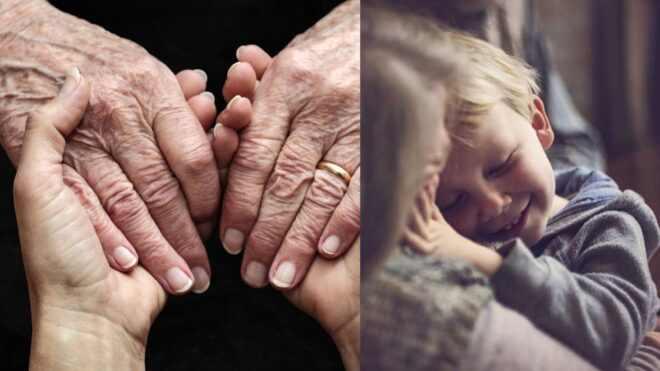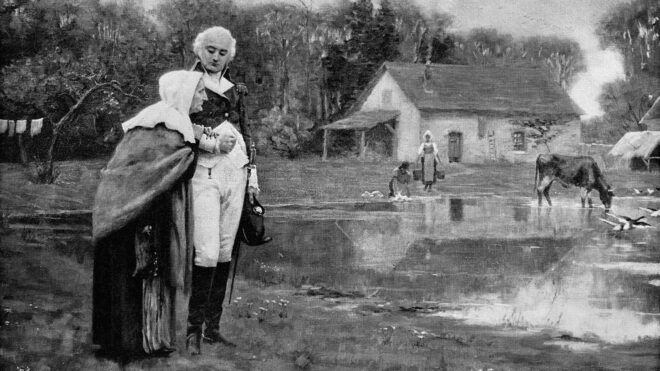
As a Chinese Canadian who was born and raised in Canada, I didn’t reflect deeply about my culture until I became a mom. I started thinking about the cultural practices and traditions I wanted to preserve and the beliefs and values I wanted to shed for the next generation.
In Chinese culture, there is a long-held tradition to shave a baby’s hair a month after it is born. During this time, the mother comes out of confinement after resting at home for 30 days. The parents host a party where family and friends would offer gifts, money, and blessings for the baby. The tradition stems from a time when infant mortality rates were high. If a baby reached their one-month birthday, it meant it was likely it would survive; therefore, it became a reason for parents to celebrate.
So shortly after I gave birth, my parents urged me to continue this ancestral practice.
First, my mom explained that shaving my daughter’s head will allow her hair to grow back thicker. She said she did that with my sisters and me so that’s why our hair is so shiny and healthy. I looked online for scientific proof for her claims, but not surprisingly, there were none.
Then, my dad explained that removing the hair that was grown in the womb gives the baby good luck.
After shaving the hair, I’m supposed to give my baby a bath to wash away evil spirits. The hair is then tied with a red string and kept with the baby as a souvenir. It’s believed that the keepsake helps calm the baby.
But as my daughter reached her one-month milestone, her hair stayed safely on her head. Here’s why…
It’s not easy to shave a baby’s head.
As a new mom, I wanted everything around my newborn to have soft surfaces and round edges. The thought of holding a pair of sharp scissors or a razor around this fragile blob of flesh made me extremely nervous.
I think about the numerous times I’ve nicked myself shaving my legs. I can’t imagine doing that to a tiny head with a delicate spot that hasn’t even closed up.
Plus, how would I hold her? I already had to explore numerous breastfeeding positions before finding something that worked. At 1 month old, she couldn't even hold her head up. Someone would have to hold her still while I carefully shaved her head. Also, she had a bad case of cradle cap that I didn’t want to aggravate.
Figuring how to do this added more stress than I needed as a new mom. The impracticality outweighed the reasons for carrying the tradition.
Also, I’m not superstitious.
I don’t believe in superstitions because it makes it seem like my life is completely out of my control. For instance, if I go against these rules, there’s an outside force that will make my life miserable. And if I follow these rules, I’m entitled to a fortune at the end of the road.
I define luck as when hard work meets opportunity. I don’t believe doing or not doing arbitrary things will change my future. I believe intentionally working hard will get me closer to my goals and lead to great things. I want my kids to understand that building resilience by overcoming challenges and persevering through difficult times is how you get you far in life, not because their mom shaved their head when they were a baby.
I’m a recovering people pleaser — and this is one area I just cannot relent.
It wasn’t easy to tell my parents I won’t be following this tradition. Growing up in a collectivistic culture, I was taught to listen to my elders and do as I was told to maintain harmony in the household. I didn’t want to upset my parents and disappoint them with my decision.
But I knew it wasn’t something that aligned with my values, beliefs, and priorities. As a parent, the choices I make for my children need to be ones I can stand on, not because someone told me to do it or because I needed to appease a family member.
I appreciate my Chinese culture and I value teaching my children the superstitions that my parents taught me. But ultimately, it’s about my kids learning their history and embracing where they came from instead of allowing certain cultural practices to dictate how they live their lives.







